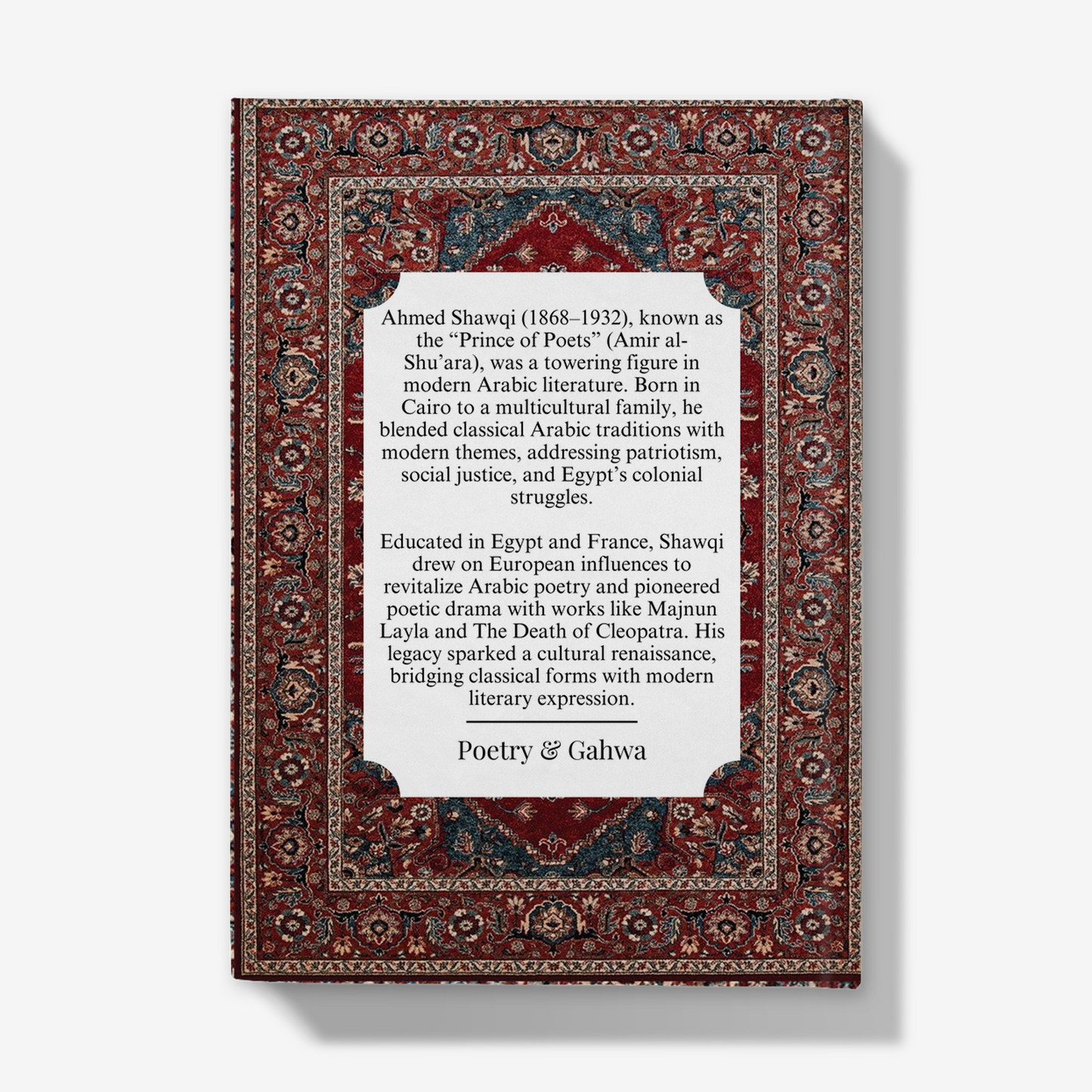Poetry & Gahwa
Ahmed Shawqi: 'You are not in front of me, yet you are all I see' Journal
Ahmed Shawqi: 'You are not in front of me, yet you are all I see' Journal
Couldn't load pickup availability
'You are not in front of me, yet you are all I see'
~Ahmed Shawqi
Experience the art of writing with the Ahmed Shawqi Journal, a timeless companion for those who cherish the elegance of thoughtful design.
Available in a convenient 5 x 7” format, this journal offers a robust 260gsm hardback cover with a chipboard construction and refined vinyl laminate finish, providing unmatched durability and sophistication.
Inside, 128 pages of premium 90gsm paper await your every word, idea, or sketch.
Choose from ruled, graph, or blank pages to best suit your unique creative pursuits.
With full-bleed print on the front and back covers, the Ahmed Shawqi Journal is crafted to inspire and elevate your writing experience.
Whether for journaling, note-taking, or artistic exploration, this journal transforms the simple act of writing into an art form.
ABOUT AHMED SHAWQI
Ahmed Shawqi (1868–1932), often referred to as the “Prince of Poets” (Amir al-Shu’ara), was one of the most celebrated literary figures in the Arab world. Born in Cairo, Egypt, to a family of mixed Turkish, Kurdish, Circassian, and Greek heritage, Shawqi grew up in a household that valued education and culture. He pursued his studies in Cairo and later in France, where he was influenced by French literature and the broader European cultural scene. Shawqi’s poetry blended classical Arabic traditions with modern themes, making his work accessible yet deeply rooted in Arab literary heritage. His mastery of language and ability to address themes such as patriotism, social justice, and the human experience solidified his reputation as a pioneering voice in modern Arabic poetry.
Shawqi’s oeuvre includes odes, plays, and epic poems that continue to resonate with audiences today. He revitalized Arabic poetry by infusing it with themes of national pride and reform, often reflecting on Egypt’s struggles against colonialism and its aspirations for independence. Among his most notable works is his elegy for Mustafa Kamil, a nationalist leader, and his poetic dramas, such as Majnun Layla and The Death of Cleopatra, which brought theatrical narratives to the forefront of Arabic literature. Shawqi’s legacy extends beyond his poetry; he inspired a cultural renaissance in the Arab world, encouraging a resurgence in the appreciation of classical Arabic forms while paving the way for new literary expressions.



